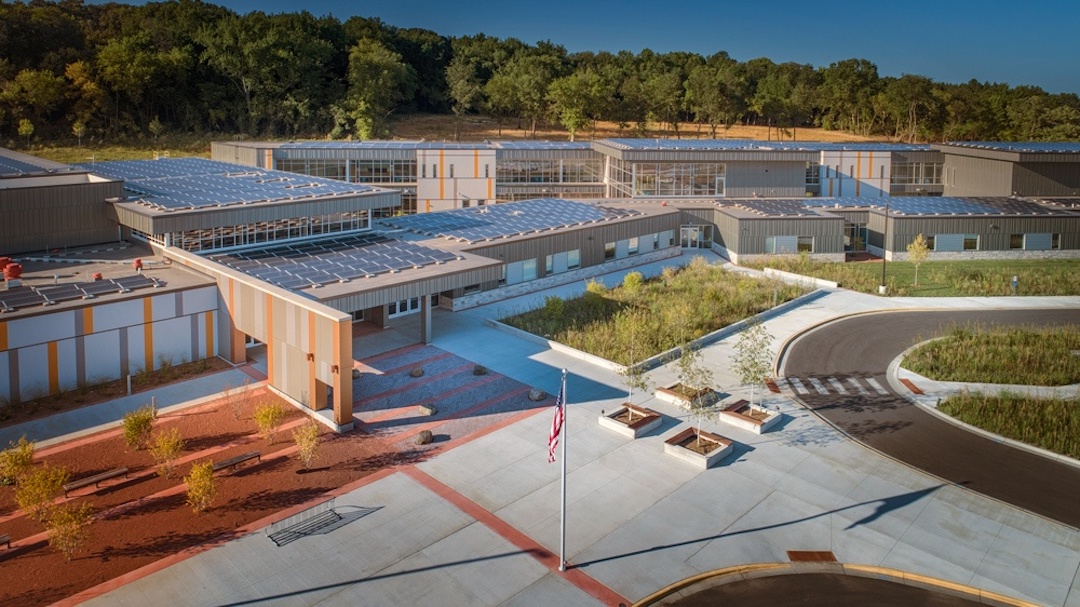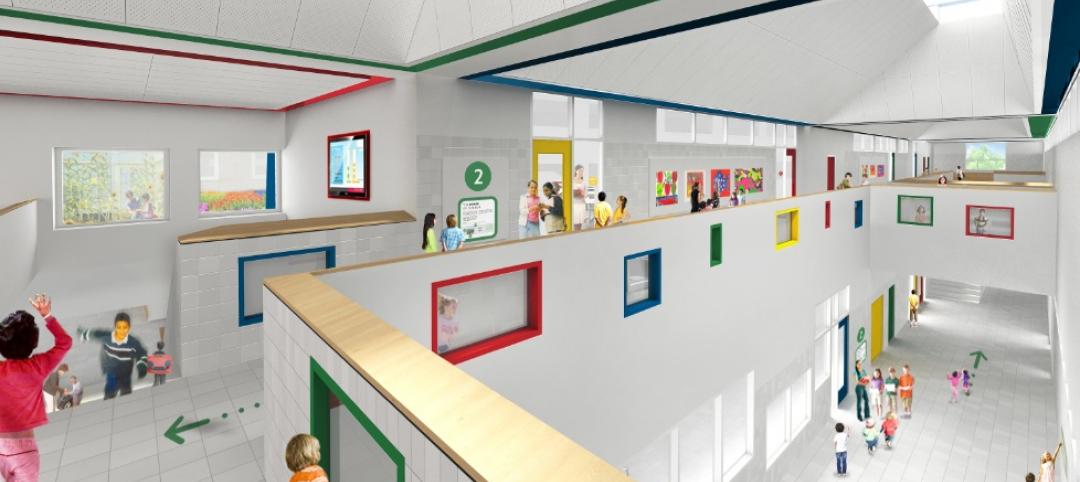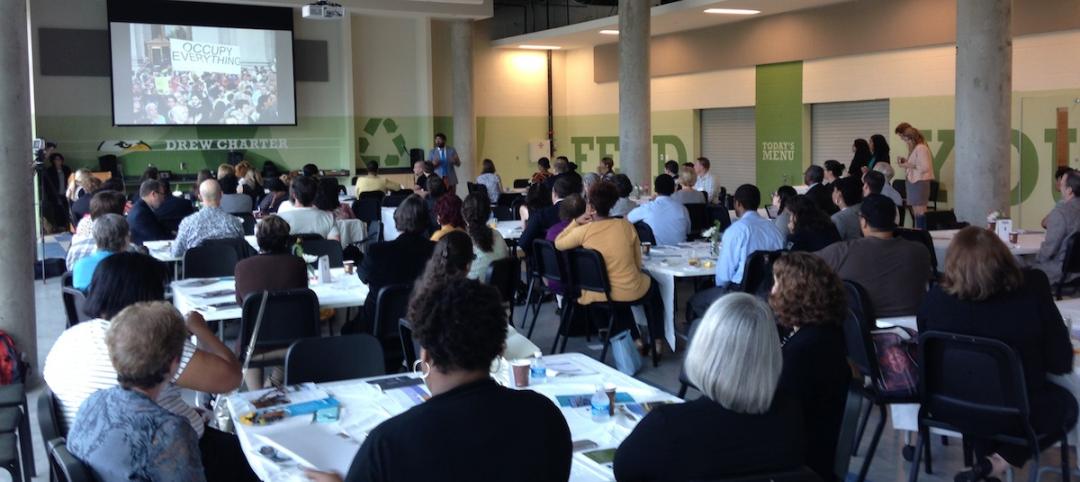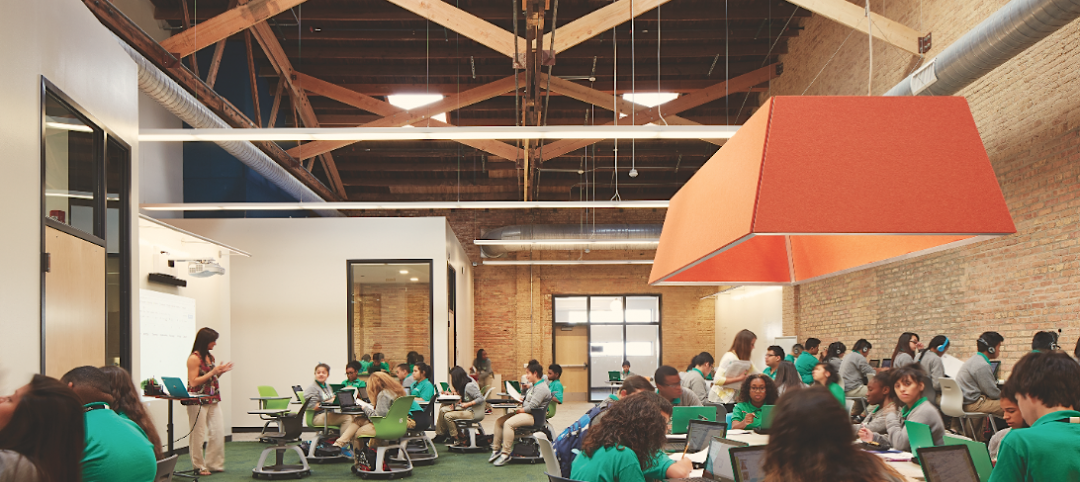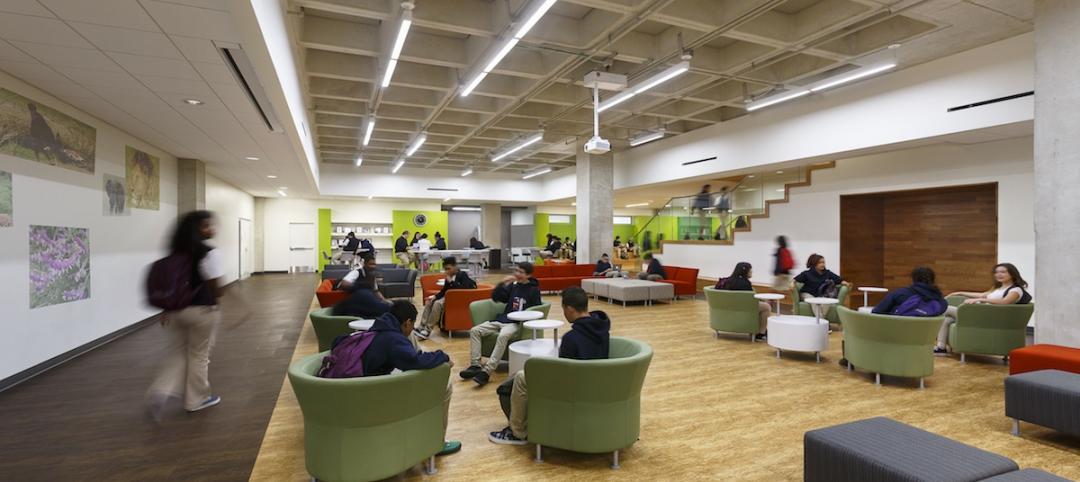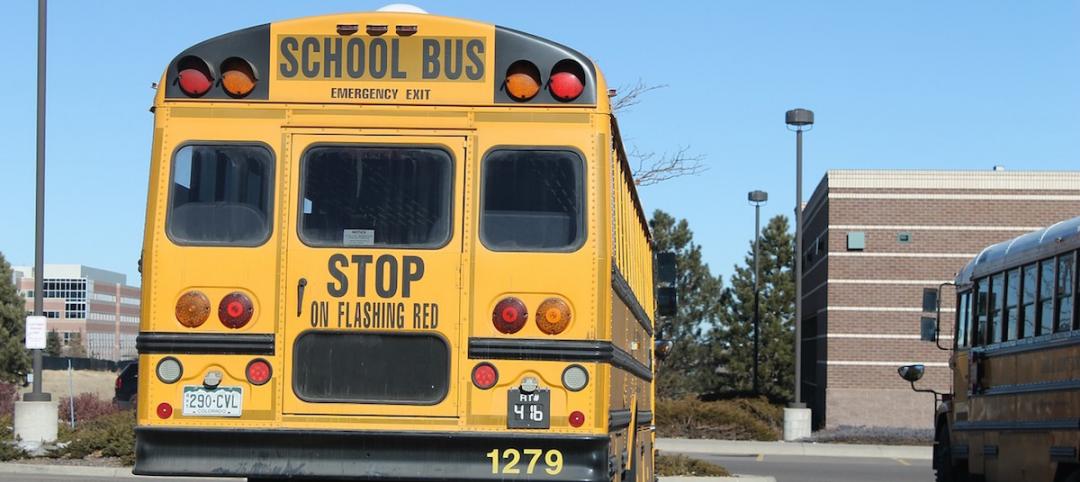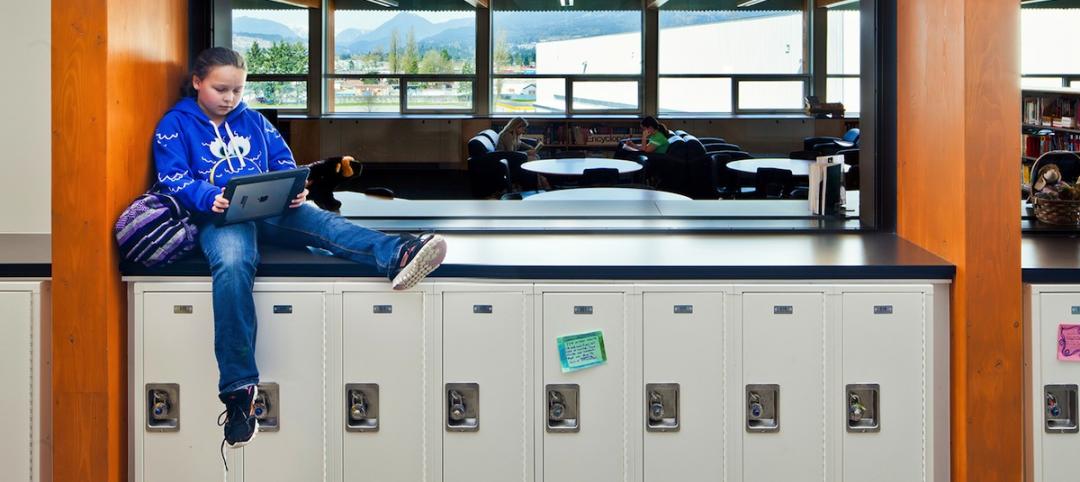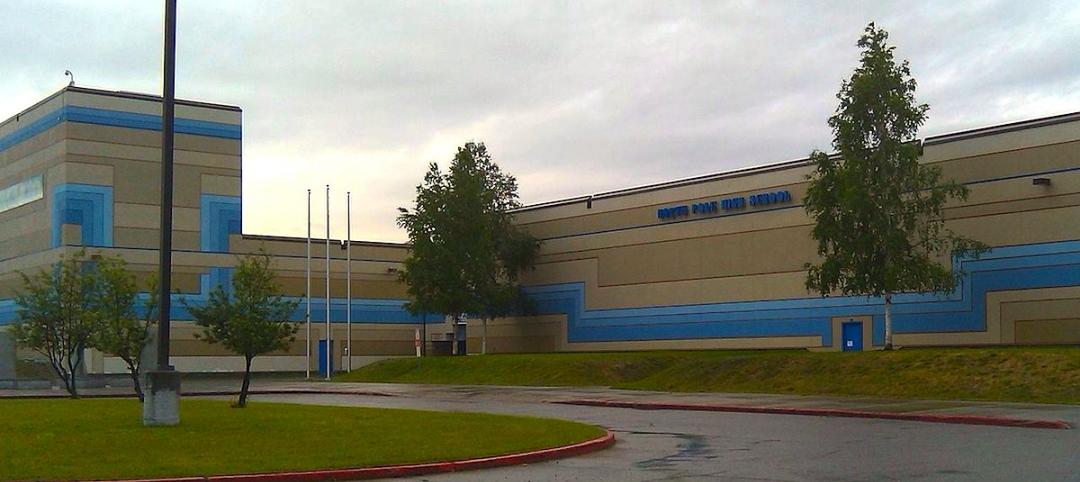Forest Edge Elementary School in Fitchburg, Wis., has become the largest net zero verified education project in the United States. The 126,600-sf project features 1,700 solar panels, 90 geothermal wells, and an energy-maximizing design.
The solar panels are on the building’s roof and, after one year in operation, the panels have provided all the power the school needs to operate. The rooftop solar panels produce 646 kW of energy in one year and offset CO2 emissions equivalent to 623,249 pounds of coal burned. In addition to being energy-efficient, the school’s design connects students to the natural environment and leverages its unique features as a teaching tool.
Bray Architects, the architect for the project, teamed with HGA and J.H. Findorff & Son to complete the project.
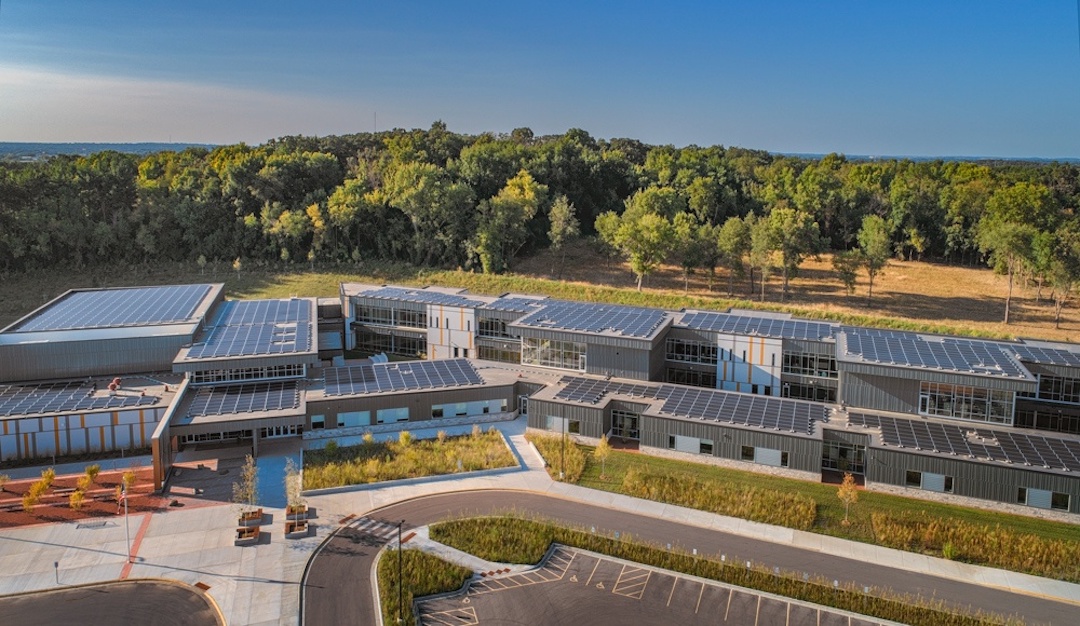
Each section of the school is themed to highlight natural energy sources: Life, Light, Thermal, and Wind. Viewing areas in the building offer views of the solar panels, vegetated roofs, and geothermal pumps. The library is designed as a “nest” that faces toward the forest adjacent to the school, immersing the students in nature while indoors.
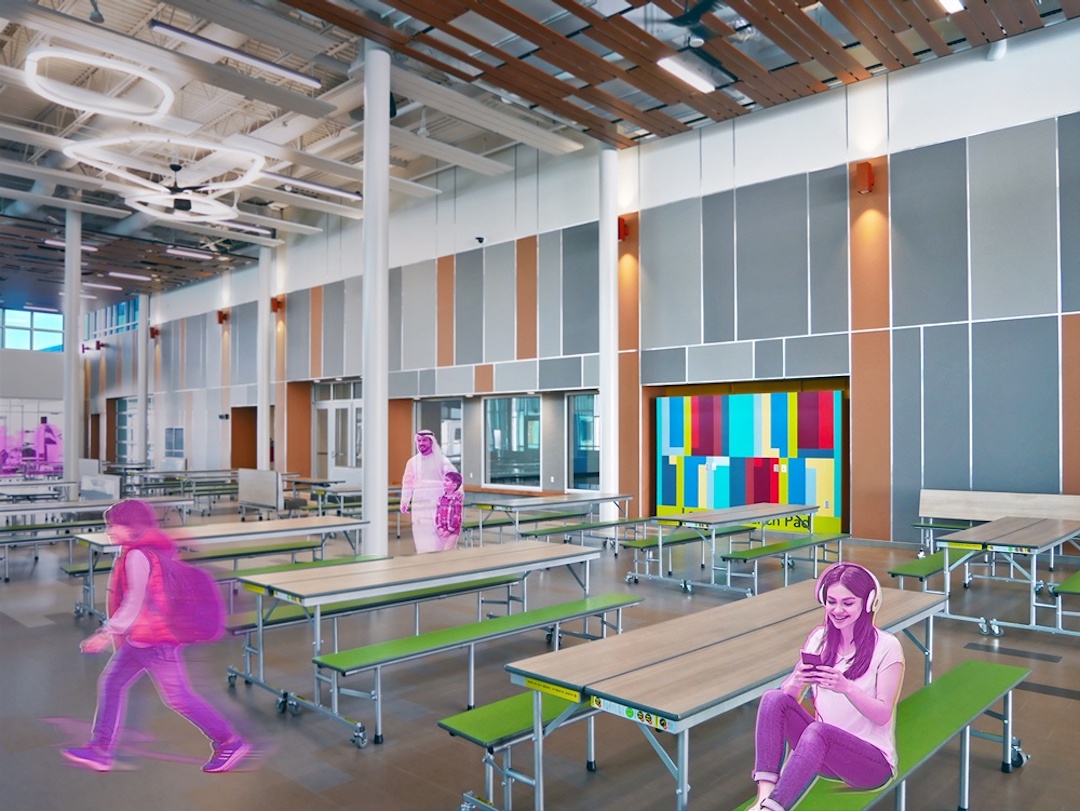
According to New Buildings Institute data, as of Oct 1, Forest Edge is:
- The largest verified net zero education facility in the U.S.
- The first net zero verified elementary school in the Midwest/Great Plains region
- The first net zero school in Wisconsin
- One of only 74 net zero verified public projects in the U.S.
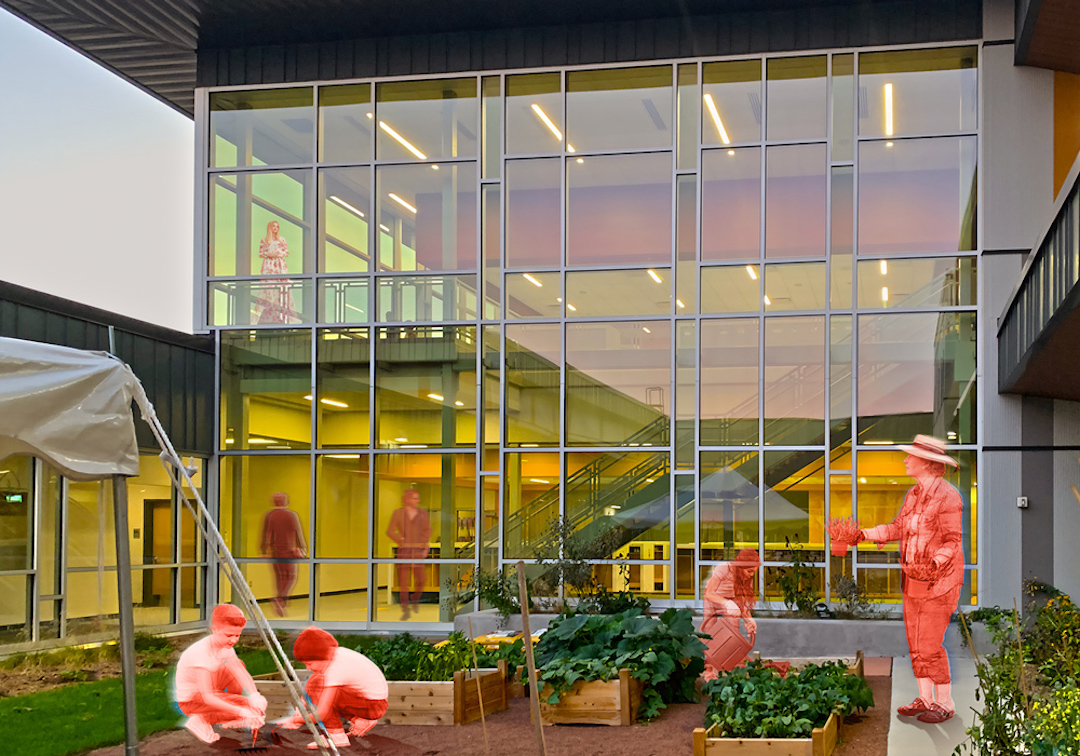
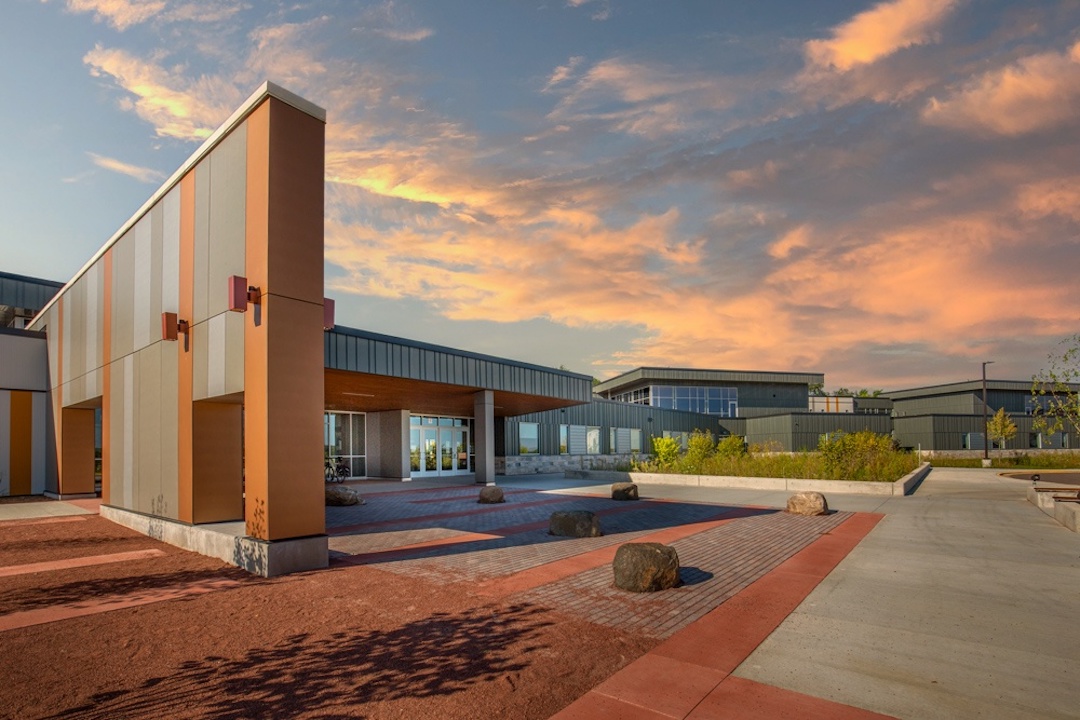
Related Stories
K-12 Schools | Nov 10, 2015
New York City opens SOM-designed net-zero school
The Kathleen Grimm School for Leadership and Sustainability at Sandy Ground will produce 662,500 kWh of energy, which will offset the amount of energy it consumes.
Designers | Sep 21, 2015
Can STEAM power the disruptive change needed in education?
Companies need entrepreneurial and creative workers that possess critical thinking skills that allow them to function in collaborative teams. STEAM (science, technology, engineering, arts, and mathematics) education might be the solution.
Giants 400 | Aug 7, 2015
K-12 SCHOOL SECTOR GIANTS: To succeed, school design must replicate real-world environments
Whether new or reconstructed, schools must meet new demands that emanate from the real world and rapidly adapt to different instructional and learning modes, according to BD+C's 2015 Giants 300 report.
Contractors | Jul 29, 2015
Consensus Construction Forecast: Double-digit growth expected for commercial sector in 2015, 2016
Despite the adverse weather conditions that curtailed design and construction activity in the first quarter of the year, the overall construction market has performed extremely well to date, according to AIA's latest Consensus Construction Forecast.
K-12 Schools | Jun 30, 2015
San Diego charter school finds home in existing public library building
The school is located on the sixth and seventh floors of a downtown public library and embraces flexible school days, internship opportunities, and project-based learning.
Codes and Standards | Jun 18, 2015
New document addresses school safety and security
In an effort to balance security and fire safety features within codes, standards and planning, NFPA hosted a two-day workshop, “School Safety, Codes and Security”, last December. The findings are now available in an NFPA report.
K-12 Schools | May 12, 2015
Bjarke Ingels completes Danish high school sports and arts expansion
By placing parts of the new building beneath the football fields, the students are able to walk through the sunken sports hall at the center of the school´s courtyard to the classrooms, cafeteria, and out to the main entrance at street level.
Sponsored | | May 11, 2015
Fire-rated glass separation helps merge new and old pools into a single connected aquatics center
Clear fire-rated glazing helps create a light-filled, safe space for student athletes and spectators in Niles, Illinois.
K-12 Schools | Apr 28, 2015
How to create an environment where students want to succeed
According to a 2014 Gallup poll, our school system not only kills children’s creativity, but also takes its toll on their motivation, writes Perkins+Will's Tinka Rogic.
K-12 Schools | Mar 22, 2015
Budget woes may lead to moratorium on school projects in Alaska
The bill would suspend 70% cost reimbursement from state to localities.


